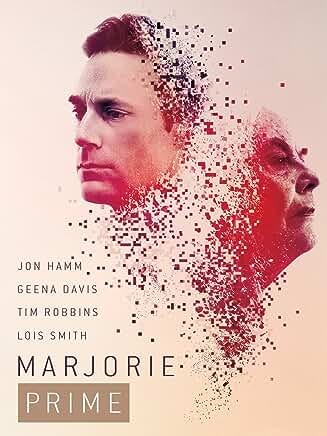Memory And Identity According To The Movies
What Portrayals Of Alzheimer's Disease, Dementia, And Amnesia Say About Us
Image by L.E. Wilson from RedBubble based on work by Elisa from Pixabay
You exist, even if it is in a state of confusion. And why would your inability to comprehend everything with perfect clarity diminish your value? After all, how could we know all? How could we understand all? Is it really fair and reasonable then to devalue a person for being confused?
You matter, even if your memory is faulty. You matter to those around you who know and love you. And why would your inability to remember everything with perfect clarity diminish your value? After all, how could we remember it all, and most importantly, why should an imperfect memory completely erase your identity?
You are not just your memories, and you are not just your brain. You exist outside of yourself. You exist as a particular individual in the minds of others, and you exist in the work you produce, in the legacy you build.
This is essentially the message in three films featuring women at different stages of life—adulthood, middle age, and elderly—who all are affected by severe memory loss or dementia: 50 First Dates (2004), Still Alice (2014), and Marjorie Prime (2017).
50 First Dates (2004) is a comedy directed by Peter Segal about Henry (Adam Sandler), a man who never wanted a long term relationship with a woman until he falls in love with Lucy (Drew Barrymore), a woman with anterograde amnesia who forgets who he is every morning.
Life Lesson: Loving someone will not keep you from your ambitions; it will help you reach them.
🍿Movie Scene Link (movie quote)
Still Alice (2014) is a drama co-written and co-directed by Richard Glatzer and Wash Westmoreland about Alice Howland (Julianne Moore), a college professor, wife, and mother who is diagnosed with early-onset Alzheimer’s disease, a form of dementia.
Life Lesson: Losing memories is not the same as losing yourself; you’re still you, an individual.
🍿Movie Scene Link (movie quote)
Marjorie Prime (2017) is a drama written and directed by Michael Almereyda, based on the play by Jordan Harrison, about a family that obtains artificial intelligence holograms to help them cope with the death of loved ones.
Life Lesson: Memory is fragile, but love is felt in the present.
🍿Movie Scene Link (movie quote)
The overall sentiment shared in these movies traverses the particular stories they tell, and the idea is actually quite universal: you are valuable because you exist as an individual, which allows you to make unique connections with others, and have a distinct contribution to the world around you.
Hence, your value is not solely due to your cognitive abilities, special talents, nor your ability to approximate perfection, whether physical, mental, or however you want to define it.
In the end, what’s important is love. These aren’t the only movies that arrive at this same conclusion, far from it! It’s actually a pretty common theme found in a wide variety of genres, from It’s a Wonderful Life (1946) to Scrooged (1988) and from How Green Was My Valley (1941) to School for Scoundrels (1960).
But the movies that deal with caring for someone with severe memory loss more poignantly deal with what is in actuality a test of love. For it is indeed difficult to deal with someone forgetting who you are, as well as terrifying to see a person you love change in dramatic and unrecognizable ways.
There is also an understandable tendency to equate memory with identity—but it’s just not so. You are still you even if you don’t remember who you are, and you are still loved even if you don’t remember who loves you. The real enlightenment is a better understanding of what love is, and it is certainly not that you need to be perfect to be loved.
When you love someone it isn’t because that person is flawless; it’s because you are able to appreciate and have affection for that individual, which in turn is what allows you to feel and develop a connection, a bond, that grows and deepens over the years.
Love then allows you to expand who you can love, because it’s not about expecting someone to optimally fulfill a predetermined list of ideals, or to be perfect in every way all the time. And likewise, love allows you to broaden who can love you, that is, to accept that you don’t have to be a paragon of perfection or a model being to “earn” the chance at being loved.
Believe it or not, others can love you for who you are—as imperfect, or average, or mistaken, or confused, or forgetful, as you may be. And, if you’ve made strong bonds with others, you will continue to be loved, even if you can’t remember their names anymore.
Visit the moviewise catalogue—a searchable database of one sentence movie summaries, movie quotes, and movie wisdom—for movie recommendations.
Also visit the moviewise store. Get a t-shirt, bag, or pillow with your favorite #LifeLesson from a movie. Reply to this or leave a comment below to make a request.










Off-topic, of course, but FIFTY FIRST DATES, with the heroine's anterograde amnesia, immediately brings to mind MEMENTO, the Christopher Nolan film based on the story, "Memento Mori," by his brother, Jonathan.